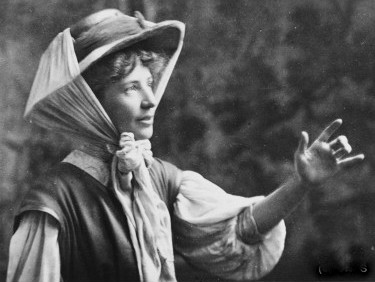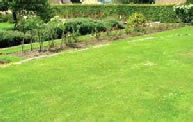Friends of Hastings Cemetery


Muriel Matters Porter, born in Adelaide, South Australia, was the first woman to “speak” in Parliament.
She lived for many years in Hastings and was cremated. Her ashes were spread in the Garden of Remembrance.

Porter, Muriel Lilah Matters-
In 1906 she came to Britain, initially for her musical career, but with an introduction to the anarchist circle centred on the exiled Prince Peter Kropotkin.
Muriel Matters rapidly became involved in the campaign for women's suffrage. Early in 1906 she was already attending meetings of the newly militant Women's Social and Political Union in Caxton Hall, London being particularly impressed by the radicalism of Charlotte Despard. In 1907 she followed Despard into the breakaway Women's Freedom League and became one of its most visible activists. In the spring and summer of 1908 she took part in a league caravan tour of Kent, Surrey, and Sussex.
Suffragettes at Hastings -
There has been a week’s open air campaign in Hastings by the Suffragettes. Using the Women’s Suffrage Van, it began on Tuesday 14th. The two orators were Miss Muriel Matters and Miss Eustace Smith. A meeting was held at Wellington Square on the evening of the 15th, with no opposition offered. At an open air meeting at the Fishmarket on Thursday evening (16th) about 30 youngsters surrounded them, to some amusement.
The Mail of 25 July said the local campaign continued with a meeting on 18th at the Market Hall, George Street. Miss Muriel Matters and Miss Cowen again spoke………. The Suffragettes concluded the week’s campaign on Monday evening by holding a lively open air meeting in Wellington Square. A crowd of several hundred gathered, attracted by a large red flag with ‘Women’s Suffrage’ in white lettering. The meeting had just assumed a lively character when the police intervened and stated that the meeting must be closed in accordance with the bye-
The first woman to “speak” in Parliament -
On 17 February 1909, the day parliament returned from recess, she hired a pilot and an airship, which she had painted with the words ‘Votes for Women’ and in which she flew at heights of up to 3500 feet over central London, scattering leaflets as she went.
in 1910 she went back to Australia for about three months. By 1911 she was campaigning again. She became increasingly interested in labour politics, in 1913 giving active support to relief work on behalf of families of those involved in the Dublin lock-
On the outbreak of war in August 1914 the suffrage societies effectively stopped campaigning.